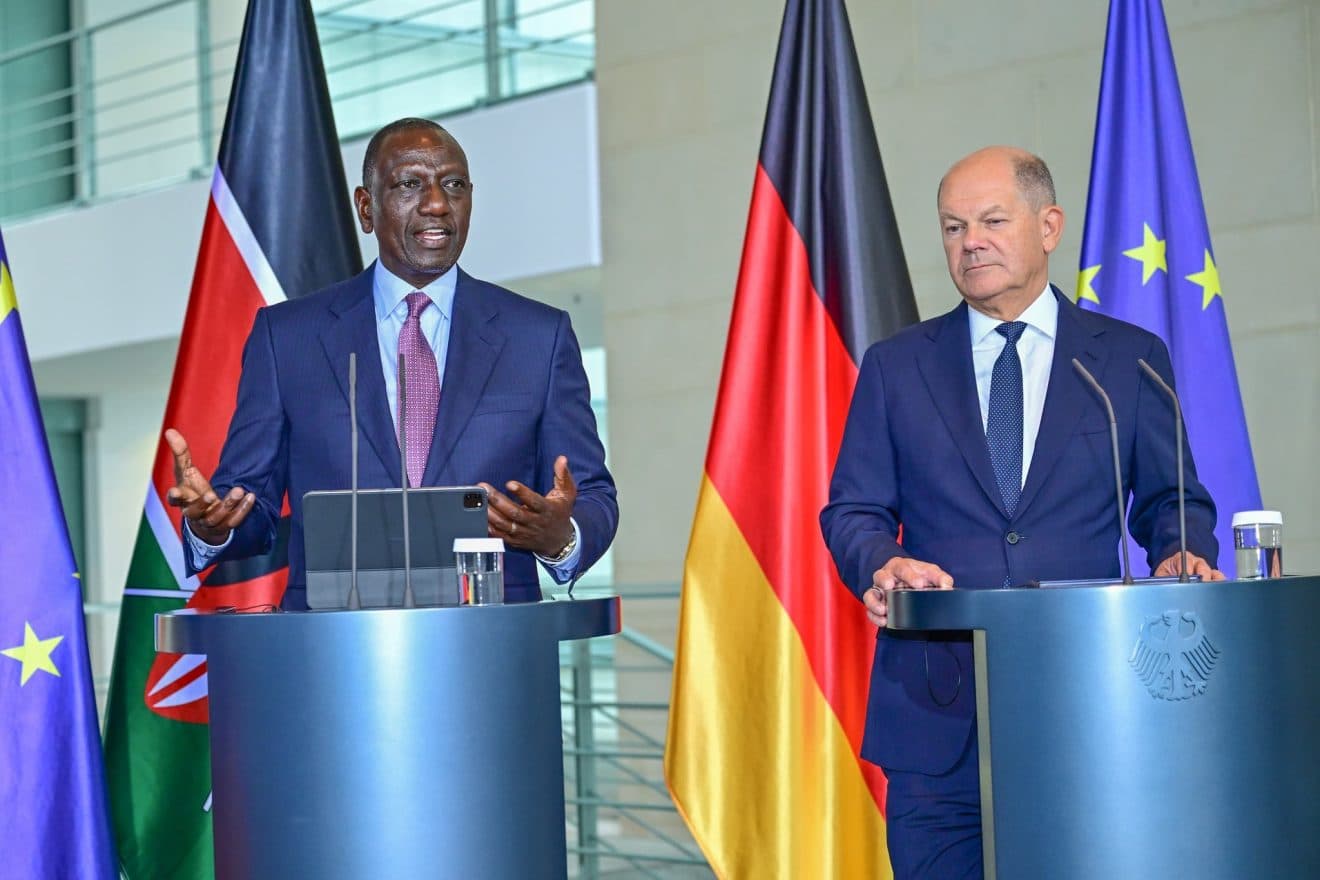We're loading the full news article for you. This includes the article content, images, author information, and related articles.
A strategic partnership focusing on renewable energy, expanding trade volumes, and creating new skilled labour pathways is redefining the long-standing relationship between Nairobi and Berlin, with significant implications for Kenya's economic and climate goals.

NAIROBI, Kenya – The diplomatic and economic relationship between Kenya and Germany, stretching back to 1963 when the Federal Republic of Germany became the first nation to recognise an independent Kenya, is undergoing a significant transformation. High-level engagements, including a state visit by German Chancellor Olaf Scholz in May 2023 and reciprocal visits by President William Ruto, have solidified a partnership increasingly centered on renewable energy, balanced trade, and skilled labour mobility. This strategic alignment aims to support Kenya's ambition to become a green energy leader while addressing Germany's demand for skilled professionals.
A cornerstone of the bilateral cooperation is Germany's robust support for Kenya's transition to 100% renewable energy by 2030. This commitment was formalized through a Climate and Development Partnership signed in November 2022, which prioritizes cutting CO2 emissions and advancing climate-friendly growth. German financial and technical assistance has been pivotal for expanding Kenya's geothermal capacity, a sector where Kenya is a global leader. Germany has provided funding for the Olkaria geothermal power station and the Silali project in Baringo County. Most recently, in August 2025, Germany, through its development bank KfW and as part of the EU's Global Gateway strategy, co-financed a €55 million (KSh 8.3 billion) loan and grant package to redevelop and expand the Gogo Hydropower Plant in Migori County, which will increase its capacity from 2 MW to 8.6 MW. According to German Ambassador Sebastian Groth, this project is part of a broader energy partnership with projects worth around €400 million (KSh 60 billion).
Germany stands as one of Kenya's key economic partners in East Africa, with over 100 German companies operating in the country. Recent trade data from the Observatory of Economic Complexity (OEC) shows a dynamic relationship. In July 2025, Kenyan exports to Germany reached €35 million against imports of €19.3 million, creating a positive trade balance of €15.7 million for Kenya. This marked a significant 85.8% year-on-year increase in exports, driven by strong performance in coffee, horticultural products like flowers, and fruits. However, the overall annual picture shows a trade balance historically in Germany's favour. In 2023, Kenya exported goods worth KSh 16 billion to Germany while importing goods valued at KSh 39 billion, a detail noted by Trade CS Salim Mvurya in October 2024. The Economic Partnership Agreement (EPA) with the European Union is seen as a key mechanism to help close this gap by providing Kenyan producers with duty-free and quota-free access to the European market.
A transformative element of the partnership is the Comprehensive Migration and Mobility Partnership agreement, formally signed in Berlin in September 2024. This agreement establishes legal pathways for Kenyan professionals to work and train in Germany, addressing Germany's significant demand for skilled labour. The first meeting of the Joint Implementation Committee was held in Nairobi in August 2025 to fast-track the agreement. A key focus is preparing young Kenyans for opportunities under Germany's Skilled Immigration Act, with an emphasis on vocational training (Ausbildung) and German language acquisition. To facilitate this, Germany has agreed to deploy German language teachers to Kenyan institutions, with Kenyatta University selected as a public university partner. The second Kenya-German job fair is scheduled for October 2025 in Nairobi to connect skilled Kenyan professionals with German employers. This initiative not only provides employment opportunities for Kenyans but also aims to ensure the protection of workers' rights and promote ethical recruitment practices.
Beyond the economic and policy frameworks, the relationship is nurtured through ongoing cultural and educational exchange. The Goethe-Institut in Nairobi promotes German language and culture, while the German Academic Exchange Service (DAAD) supports academic collaboration through scholarships and university partnerships. Since 2020, German has been offered as an optional subject in Kenyan schools, further laying the groundwork for future cooperation. These deep-rooted connections, from Germany's early recognition of Kenya's sovereignty to the current multifaceted partnerships in climate, trade, and skills, position the relationship as a vital axis for mutual development in the years to come.
Keep the conversation in one place—threads here stay linked to the story and in the forums.
Sign in to start a discussion
Start a conversation about this story and keep it linked here.
Other hot threads
E-sports and Gaming Community in Kenya
Active 9 months ago
The Role of Technology in Modern Agriculture (AgriTech)
Active 9 months ago
Popular Recreational Activities Across Counties
Active 9 months ago
Investing in Youth Sports Development Programs
Active 9 months ago
Key figures and persons of interest featured in this article